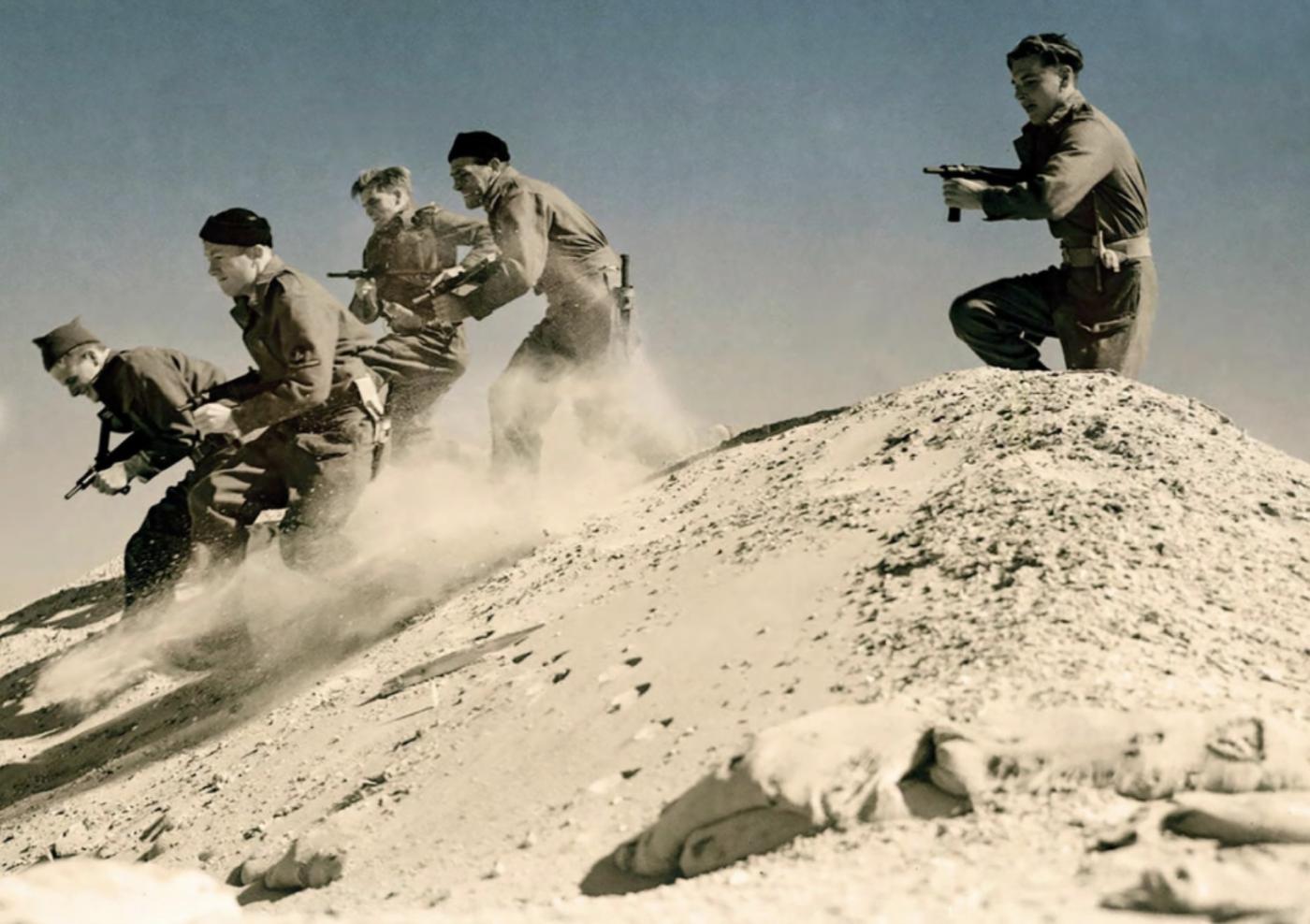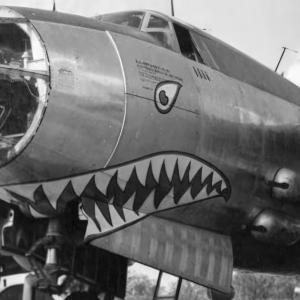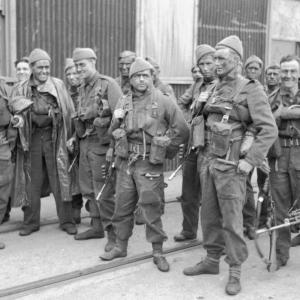
On this day in military history…
Operation Flipper was a daring British Commando raid launched on the night of 10 November 1941 as part of a broader Allied effort to destabilise German forces in North Africa ahead of Operation Crusader. Conceived by General Claude Auchinleck but enthusiastically pushed forward by Lieutenant-General Bernard Montgomery’s staff in Cairo, its ultimate ambition was audacious: to penetrate Axis lines near Beda Littoria in Cyrenaica, Libya, and assassinate General Erwin Rommel, commander of the Afrika Korps, in his own headquarters. Intelligence at the time mistakenly believed Rommel was staying at a remote villa and traveling with minimal security. In reality he had already departed for Rome two days earlier, but the British did not know this when they launched the mission.
The men tasked with the raid were from No. 11 (Scottish) Commando, reinforced by elements of the recently formed Special Boat Section and Long Range Desert Group. The assault group itself consisted of just thirty-seven hand-picked commandos under the command of Lieutenant Colonel Geoffrey Keyes, winner of a Military Cross and already considered one of Britain’s most capable young raiding officers. They sailed covertly from Alexandria in two Royal Navy submarines, HMS Torbay and HMS Talisman, inserted by collapsible folboats to a moonless, windswept coastline roughly 20 miles from the objective. Weather and timing immediately worked against them. Heavy seas and navigation difficulties caused two of the assault parties to be separated and delayed, and valuable wireless gear was lost in the surf, crippling communications with the Mediterranean Fleet.
Keyes pressed ahead with only about twenty-five men once reunited on land. They had a long forced march through cold, rain and mountainous country, using Arab guides and wearing Italian uniforms over their battledress to avoid detection. The primary target was believed to be Rommel’s headquarters at a villa near the town of Beda Littoria. Other simultaneous objectives were to hit the Italian 21st Army Corps HQ and the local communications hub to paralyse Axis response. The operation had been planned with tight timings to coincide with Rommel’s supposed presence and the launch of Operation Crusader; British intelligence was confident Rommel slept in a small billet with only a few guards.
Shortly after midnight on 14 November, after four days of infiltration, Keyes and a handful of men stormed the building identified as Rommel’s villa. It was in fact the headquarters of the 90th Light Division. Keyes led from the front and personally attacked the doorway with grenades and a revolver. He was shot almost instantly in the stomach and died soon after. Captain Robert Haselden, Keyes’ second in command and the main Arabic-speaking officer, fought to continue the attack but soon realised the building held dozens of enemy staff, far more than anticipated. The German garrison was fully awake within moments. The commandos withdrew under fire, extracting what wounded they could.
Rommel, unbeknownst to the raiding force, was hundreds of miles away in Rome meeting with Hitler and the Oberkommando der Wehrmacht, leaving the raid’s central premise obsolete from the outset. The scattered secondary parties never achieved their objectives. With no functioning radio, the commandos could not call for extraction and were forced to split up and try to reach British lines on foot. Most were hunted down over the following days by German and Italian patrols; several died of exposure or in skirmishes. Eighteen of the men were captured, some badly wounded.
The raid had failed tactically. Keyes was killed, one commando was killed during the withdrawal, and the majority of the survivors were taken prisoner. Only a handful made it back to Allied lines. But the boldness and skill with which the attack was carried out impressed both Axis and Allied observers. Keyes was awarded a posthumous Victoria Cross. Though the mission did not kill Rommel or meaningfully damage German command coherence, it contributed to Axis anxiety about British special operations reach, forcing greater security measures at headquarters across Libya. In the wider picture of the North African campaign, Operation Flipper was ultimately a courageous but unsuccessful raid, notable more for its ambition and the heroism of its participants than for any strategic impact on Rommel’s leadership or the upcoming battle of Operation Crusader.










